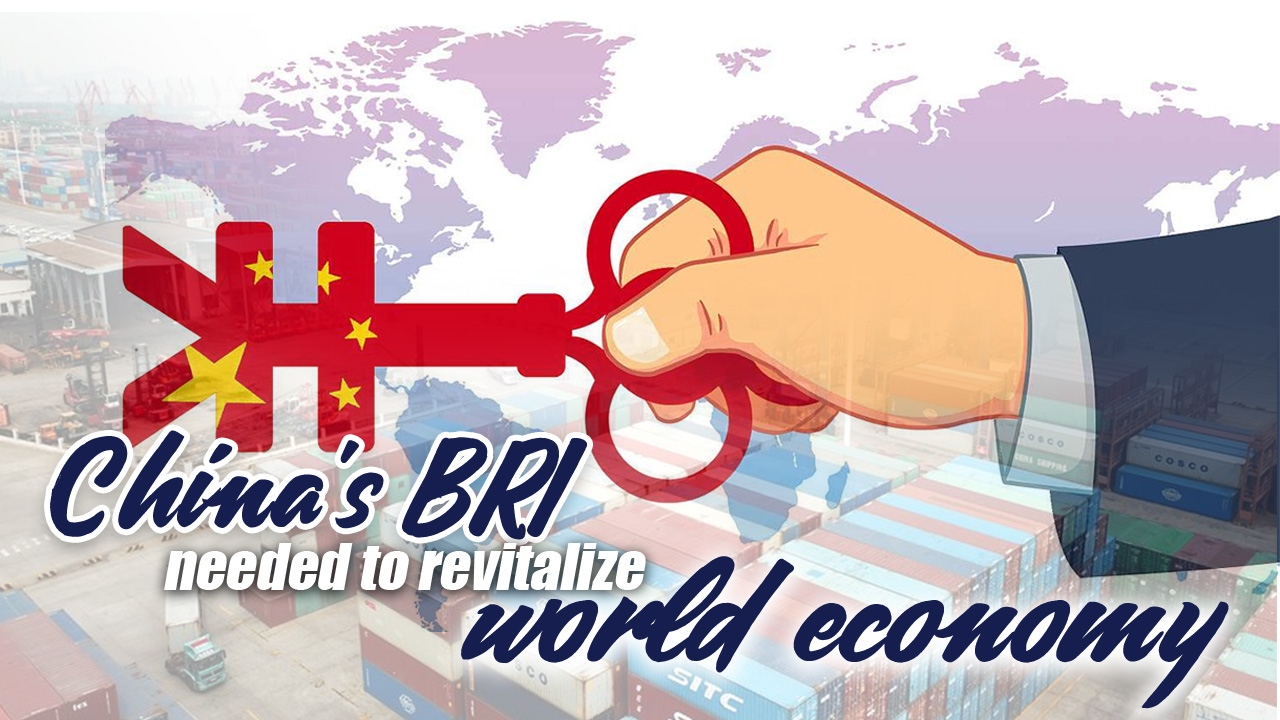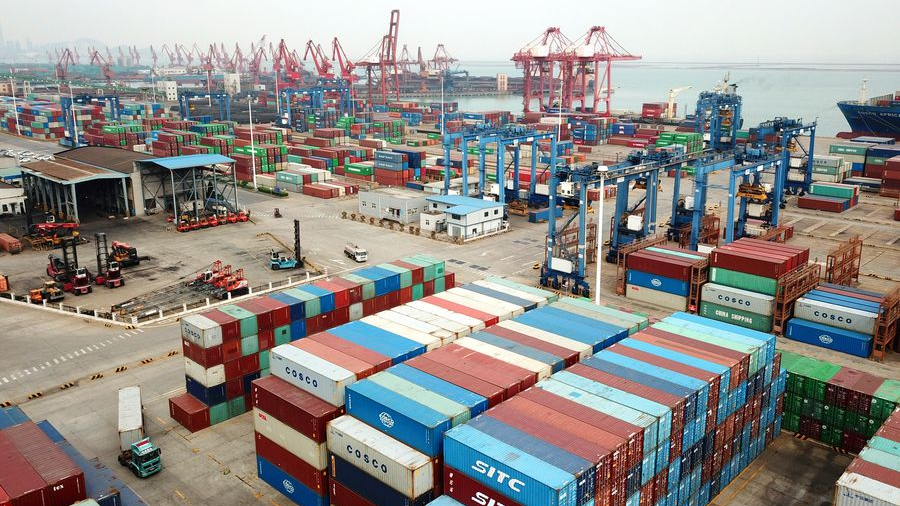
Editor's Note: The COVID-19 pandemic in 2020 has changed the lives of many people around the world and may even change the global landscape. While Western nations are still struggling with COVID-19, China has already started its economic recovery. Here is the first piece in our "China In Focus" series during Two Sessions: China's BRI. Lawrence Freeman is a political-economic analyst for Africa with 30 years of experience in Africa promoting infrastructure development policies. The article reflects the author's opinions, and not necessarily the views of CGTN.
The global economic breakdown ignited by the COVID-19 pandemic entails China and its Belt and Road Initiative (BRI) playing an important role in restoring health to the world economy. While Western nations are still struggling with COVID-19, and are months away from beginning to refurbish their economies, China has already started its recovery, following its earlier success in combating the coronavirus.
The collapse of nations to conditions resembling the Great Depression and the inability to contain the deadly virus have belied the alleged success of globalization. The underlying flaws of the deregulated post Bretton Woods financial system, which has become an international gambling casino to make fast money, are now nakedly revealed. Given the breakdown of the present global financial system, it is urgent that leading nations issue a call to convene a conference to initiate a New Bretton Woods system, which values human life over making money.
For civilization to progress, a new economic architecture dedicated to ending poverty, and promoting productive economic growth is compulsory. Without question, the United States and China will have to perform outsized roles in establishing a new paradigm of political-economic relationships among nations, notwithstanding current tensions.
A new globalization required
The foolish and noxious belief that an economy will grow best by acquiring products cheap-cheap-cheap, cheating on labor costs, and consigning emerging nation's food supply to farmers subsisting on 1-2 hectare plots of land, will have to be jettisoned once and for all. Consider the following essential categories of input needed to transform the global economy, which China and the BRI can contribute.
Productive jobs
Creating hundreds of millions of productive jobs is a necessity to transform the global economy. The International Labor Organization (ILO), estimates the total world labor force is 3.3 billion people, and about two billion of them, or 61 percent of the total, are working in the informal economy. These workers live hand to mouth, day to day, with no insurance of any kind. The vast majority of such informal workers (93 percent) are to be found in the Third World.
In the first month after the pandemic hit their countries, laborers in the informal economy suffered an average 60 percent drop in their income. Now, 1.6 billion of those two billion informal workers — almost 80 percent of all informal workers — have lost their jobs or are about to. Tragically, Africa has 86 percent of its labor force working in the informal economy, the highest of all continents.
Infrastructure
Nations and their citizens can no longer depend on other countries providing the necessities of life upon which the security of their nation-state requires to survive. Developing nations should stop importing the majority of their food. Africa, for example, despite having abundant fertile soil is approaching a yearly import bill of 35 billion U.S. dollars. This is a terrible drain of precious foreign exchange, and entirely unnecessary. In fact, the African continent can become a new food exporter with the proper inputs. Infrastructure in water management, railroads, roads, and energy are critical ingredients for growth in food output.

Containers at the Lianyungang Port in Lianyungang City, east China's Jiangsu Province, April 14, 2020. /Xinhua
Containers at the Lianyungang Port in Lianyungang City, east China's Jiangsu Province, April 14, 2020. /Xinhua
To their credit, China and the BRI have taken the lead in constructing and financing critical infrastructure throughout the world. This should be accelerated with particular emphasis on energy generation. The appalling levels energy available to businesses and citizens across the Africa continent is not only preventing these societies from developing but is literally killing people. In addition to new hydroelectric dams, the BRI should begin building nuclear power plants in Africa to address the continent's 1,000 gigawatts energy deficit.
Manufacturing
Each nation having a robust manufacturing sector is a necessary ingredient for a functioning economy. Many emerging nations have little or no manufacturing sector. Sub-Saharan Africa's production of manufacturing valued added goods constitutes less than three percent of world trade. It has been shown that creating manufacturing jobs is essential to transitioning to a more developed economy. Exporting advanced capital-machine goods through the BRI will enable nations to produce, on their own, the commodities to sustain their society. With this export focus, the BRI contributes greater value to nations struggling to overcome decades of underdevelopment.
Healthcare
A health or medical BRI is urgently needed for nations to expand and upgrade their healthcare infrastructure. As deadly as the COVID-19 is in the advanced sector, healthcare is so dire in the developing sector, experts fear hundreds of thousands may die from the virus. Dozens of countries lack a minimum number of physicians, hospitals, intensive care units, and ventilators per 1,000 people. Establishing the African Center for Disease Control and Prevention was a huge step forward, but to deal with COVID-19 and new zoonotic viruses requires installing more virology laboratories and medical research centers. China is already applying its expertise in this domain.
Science
Advances in science and technology should not be limited to a small group of nations. Exporting space science through the BRI is invaluable. Every nation should participate in, and benefit from satellite technology, such as monitoring-detecting locust swarms and crop production. Training centers for advanced engineering should become part of every nation's university and post graduate curriculum.
Given the massive contraction of the world economy this year due to COVID-19, the BRI provides an essential platform for all nations to cooperate and collaborate in restructuring trade and production to a higher level.
(If you want to contribute and have specific expertise, please contact us at opinions@cgtn.com.)